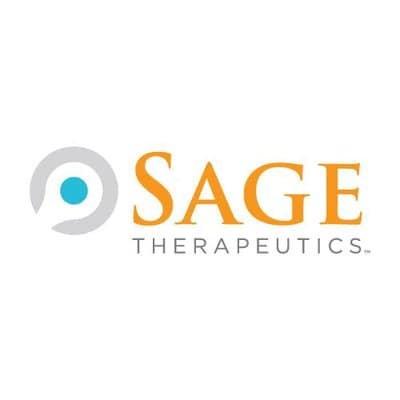
Sage Therapeutics was riding high in the summer after claiming an FDA approval for its first product, but just a few months later its suffered a big change in fortunes.
The company has just revealed that the pivotal phase 3 MOUNTAIN trial of its drug SAGE-217 – also known as zuranolone – missed its primary endpoint in major depressive disorder (MDD), wiping almost 60% off its share price as investors reacted to the disappointment.
SAGE-217 is an oral follow-up to Sage’s Zulresso (brexanolone) for postpartum depression (PPD), which was approved by the FDA in March and is delivered by a 2.5-day continuous infusion.
SAGE-217 also hit the mark in the phase 3 ROBIN trial in PPD earlier this year, so its failure in the MOUNTAIN study in MDD – a much larger population – wrong-footed the company and investors, doubly so as an earlier phase 2 trial in more severe MDD also generated positive results.
In MOUNTAIN, a 30mg, one-daily dose of SAGE-217 was unable to meet the primary objective of a statistically significant reduction compared to placebo in the Hamilton Rating Scale for Depression (HAM-D) scale at day 15.
At the end of the 15-day period, SAGE-217 achieved a reduction of 12.6 on the HAM-D scale, versus 11.2 for placebo, which wasn’t a statistically significant difference.
Sage has pointed to better readouts for its drug at earlier time-points – days three, eight and 12 – and says the study may have been compromised by subjects not taking SAGE-217 as indicated.
In 9% of them, there was no measurable drug concentration in their blood, and if these were excluded the drug did manage a significant improvement over placebo.
There was also an increase in efficacy if patients at the less severe end of the MDD spectrum were excluded.
With analysts suggesting that Zulresso’s high cost ($34,000 at US list price) and delivery method will limit its market potential to around $250m at peak, SAGE-217 has been viewed as a potentially much more lucrative product for Sage.
That partly explains the scale of the share decline, as well as investor nervousness that the most common reason for a failed depression trial – a higher-than-expected placebo response – was not apparent in this case.
The big cause of the decline was that disappointment that Sage will likely not be able to move ahead with a swift regulatory filing for SAGE-217, as planned.
Shares in Sage rocketed earlier this year when SAGE-217 became the first non-cancer drug to be awarded an expedited development route allowing approval on the strength of phase 2 data, potentially setting up a dual filing in PPD and MDD if MOUNTAIN had been positive.
SAGE-217 – described as a next generation GABAA positive allosteric modulator – is among a crop of new-generation antidepressants that are being developed to address the key limitation of current drugs, namely that they can take weeks or months to create an effect, as well as to provide an option in people who don’t respond to older therapies.
Johnson & Johnson is the first company to score an approval in this category, getting and FDA green light earlier this year for glutamate NMDA receptor modulator Spravato (esketamine), a nasal spray that is used as an add-on to standard drugs for treatment-resistant depression.
Shortly after Spravato was approved, Allergan’s late-stage candidate rapastinel – a weekly injectable drug targeting NMDA – bombed in three phase 3 trials.




